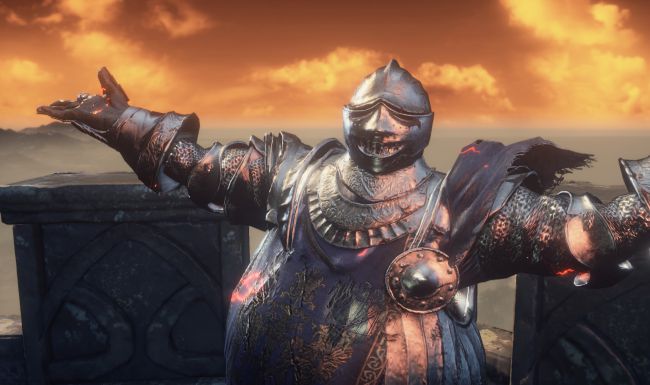FromSoftware boss addresses gaming industry layoffs: 'As long as this company's my responsibility, I would not let that happen'
Hidetaka Miyazaki describes FromSoftware's relationship with parent company Kadokawa and references Satoru Iwata's perspective on layoffs.

Between Embracer laying off thousands of employees and Microsoft shuttering studios like Arkane Austin and Tango Gameworks, the recent wave of high profile multibillion-dollar acquisitions have proven to be terrible for the games industry. It's hard to look at any game studio that's been gobbled up by a new parent company and not be worried that it may soon be gutted just to promise shareholders 11% higher profits for the next fiscal year. This vile trend was on my mind when I visited FromSoftware in May for PC Gamer's cover story on Elden Ring: Shadow of the Erdtree—despite seeming quite independent, the studio does have a parent company, Kadokawa Corporation.
Kadokawa isn't Microsoft big, but it is still big, with revenue of about $1.65 billion in its last fiscal year. FromSoftware is one of Kadokawa's major earners, but the company also makes significant money in the manga publishing and anime markets (Delicious in Dungeon is one of its recent hits).
With games like Elden Ring selling more than 25 million copies, you'd think FromSoftware would be free of any meddling—why mess with the golden goose? But that logic hasn't saved other game studios from short-sided across-the-board layoffs at mega publishers like EA, 2K, Sony… the list goes on. So I asked FromSoftware president Hidetaka Miyazaki what he could say about FromSoftware's business relationship with its parent company, and whether From was at risk of the same fate that's befallen studios under the Embracer umbrella in the last year.
"Speaking to myself and this company, I want to say that this is not something I would wish on the staff at FromSoftware in a million years," Miyazaki said. "I'm pretty sure our parent company Kadokawa understands that and shares that view."
So far FromSoftware hasn't just been immune to the layoff waves that have struck western game companies, but it's been expanding—the studio has grown significantly since it started Elden Ring, and is now big enough to develop at least two games simultaneously (as shown by last year's Armored Core 6). It's also not the only Japanese company in that position: this year Capcom made a point of raising employee pay rather than conducting layoffs (though Japanese wages are notoriously low, which may be one factor insulating them from layoffs).
During one of many brutal waves of layoffs this year, fans pointed to the two times former Nintendo president Satoru Iwata took a pay cut instead of laying off workers, a move no current game CEOs seem eager to replicate. But when we spoke, Miyazaki himself also cited Iwata's reasoning in 2013 for not laying off employees even when the company was operating at a loss.
"I think it was the old ex-president of Nintendo, Iwata-san, who said that 'people who are afraid of losing their jobs are afraid of making good things.' I'm paraphrasing that, but I totally share this view," Miyazaki said.
The biggest gaming news, reviews and hardware deals
Keep up to date with the most important stories and the best deals, as picked by the PC Gamer team.
"I think it's true. And I think the people at Kadokawa, our parent company, understand that I hold this view very strongly. While we can't say 100%—we can't say with complete certainty what the future's going to hold for From and Kadokawa—at least as long as this company is my responsibility, that's something I would not let happen. So hopefully our players and our fans can take a little bit of assurance from that."
It's a strong statement, particularly next to the usual CEO lines about hard decisions and rationalizing pipelines.

Wes has been covering games and hardware for more than 10 years, first at tech sites like The Wirecutter and Tested before joining the PC Gamer team in 2014. Wes plays a little bit of everything, but he'll always jump at the chance to cover emulation and Japanese games.
When he's not obsessively optimizing and re-optimizing a tangle of conveyor belts in Satisfactory (it's really becoming a problem), he's probably playing a 20-year-old Final Fantasy or some opaque ASCII roguelike. With a focus on writing and editing features, he seeks out personal stories and in-depth histories from the corners of PC gaming and its niche communities. 50% pizza by volume (deep dish, to be specific).

